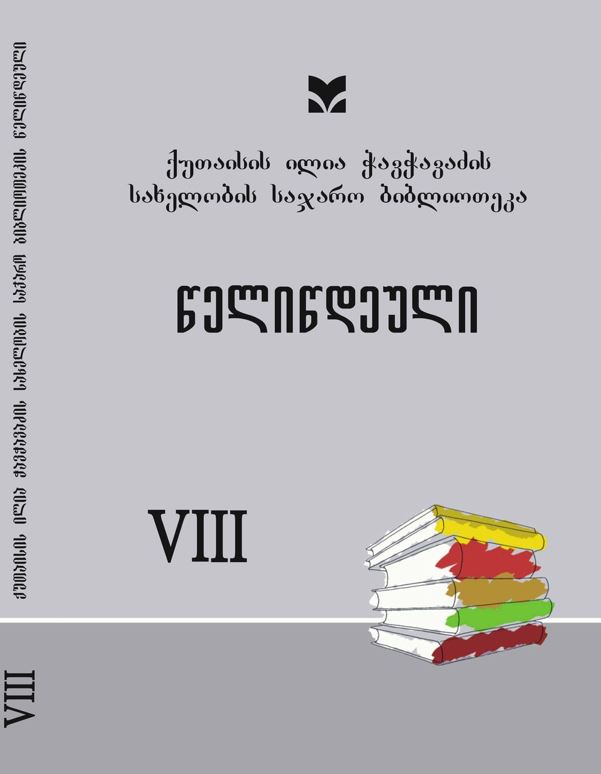The Functional-semantic Microfield Of Negation In The Georgian Literary Language And Dialects
Abstract
Negation is studied within many scientific fields: logics, philosophy, communication theory, linguistics and others. The functional-semantic category of negation is fundamental, complex and multiaspectual; it is found in every language and occurs on all of their levels.
In the Georgian literary language negation can be expressed explicitly (by the lingual signs) and implicitly (covertly, solely semantically or situationally). The functional-semantic microfield of negation is a part of the macrofield of affirmation and negation. This microfield envelopes the following levels: morphological, lexical, derivative and syntactic.
The core of the microfield contains the predicative or general tools of expressing negation: ar ‘no’, aãar ‘no more’, arts ‘neither’; nu ‘no’ [in the meaning ‘do not’], nuãar ‘not any more’, nurts ‘not either’; ver ‘no’ [in the meaning ‘cannot more’], veãar, verts ‘not either’. The particle ver adds some modal nuance of impossibility.
The following lexical means can be pointed out on the first level of the field: negative pronouns and adverbs, expressing proper negation (negation of a person, thing, attribute, feature, place, time or situation).
On the second level we place negation expressed through derivation:
derivation by means of particles ar ‘not’, ver ‘not’ [in the meaning ‘cannot’, ‘it is impossible’] occurring in the nouns/adjectives and adverbs, and there we place the
reversal forms of the participles on this level too.
Syntactic negation is placed in the peripheral part, farthest from the core.
This type of negation is expressed by the special syntactic constructions.
The negation system in Georgian is the same for the literary language and for
the dialects, the differences evidenced only in the phonetic variations of the certain
lexical units (arafeli, verafeli, aferi, veferi, artsertsi, artsrois…), in multiplicity of
the particles in the dialects and some pronouns with different manner of derivation:
arak’atsi ‘nobody’, verak’atsi ‘nobody, neither’ and loan word heè …
The Georgian language and its dialects belong to the mixed type of negation
considering the fact that it is possible to use mononegative and polynegative (mainly
in the doubled negation) types in parallel.




